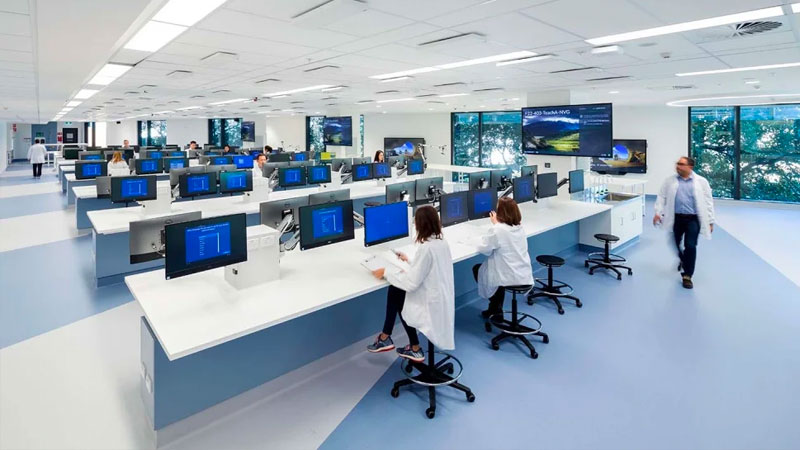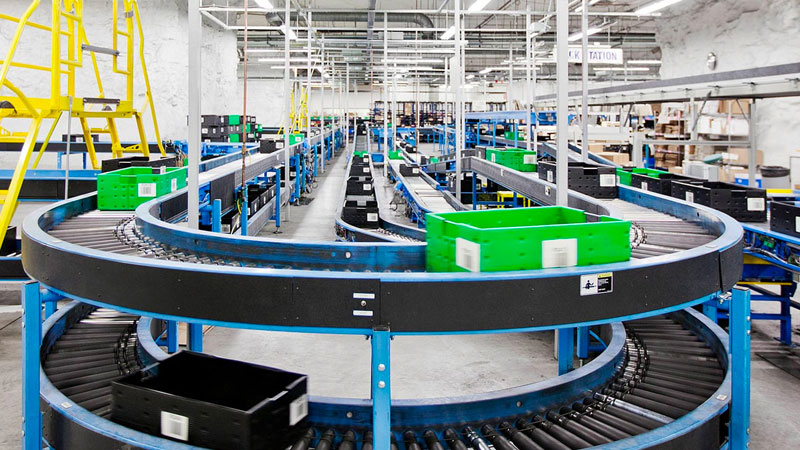Resources
Newsletter
Stay up to date and with the latest news, projects, deals and features.
SubscribeLife sciences and pharmaceutical hubs are driving demand for commercial and industrial real estate as the once-niche sector expands rapidly on the back of accelerating occupier and investor demand.
According to CBRE, the life sciences sector—which includes pharmaceutical, biotechnology, medical equipment, food science and healthcare—has strengthened as an asset class over the last 12 months as other sectors suffered.
While life sciences real estate is proportionately larger and more established in global markets, it is also gaining traction in the local market.
CBRE Pacific head of capital markets Mark Coster said the local life sciences industry held enormous growth potential owing to the region’s large ageing population, low health expenditure per capita and a rise in pharmaceutical research and development.
“Australia’s world class healthcare system and an established network of highly-regarded universities and research institutions have ensured the country’s appeal to global life sciences companies,” Coster said.
“This is underpinning investor interest in life sciences real estate.”
Melbourne leads the way in Australia, now ranked as one of the top five life sciences hubs in the Asia Pacific region.
The city is now home to two in five Australian life sciences companies and attracts more than 40 per cent of national medical funding.

Parkville, well-marked as an established inner-city precinct, is also home to the University of Melbourne ranked second globally for university-related biomedical research.
Melbourne Airport Business Park is also expected to house large-scale facilities in coming years, riding a wave of development and benefiting from macro-trends propelling the industry into a fresh phase of investment and expansion.
Late last year, biotechnology giant CSL unveiled plans to build a $800 million vaccine manufacturing plant at the Melbourne Airport Business Park, with operations expected to start in 2026.
Elsewhere, established clusters like Macquarie Park in New South Wales and emerging precincts developing in Brisbane, Adelaide, Perth, and the Gold Coast were “adding to Australia’s appeal”.
Henry Chin, CBRE Asia Pacific head of research, said that capital markets activity across the region had remained limited, there had been heightened competition for available assets since the start of the pandemic.
“Life sciences transactions account for less than 1 per cent of annual investment activity, compared to circa 4 per cent of deal activity globally,” Chin said.
“The obvious entry route is through sale and leasebacks as multinational pharmaceutical companies recycle capital for research and development activities or offload non-essential assets following mergers and acquisitions.
“We expect other opportunities will include converting older industrial properties into laboratories or cold storage facilities as well the construction of modern life science facilities under public-private partnership frameworks across the region.”

Late last year, Sigma Pharmaceuticals sold cold storage facilities in Brisbane and Sydney to Logos Property for $172 million, while Charter Hall’s recently acquired GlaxoSmithKline’s life sciences campus at Boronia in Melbourne’s east for $106 million.
Dexus, the country's largest office landlord, spent $140 million acquiring two buildings in Parkville earlier this year as well as the most recent acquisition of two sites in Brisbane's health precincts Spring Hill and Herston for $130.7 million.
Dexus has been steadily expanding its exposure to healthcare real estate, since seeding the unlisted Dexus Healthcare Property Fund. four years ago with a combination of assets including an Adelaide hospital, Calvary Private, that was under development at the time.
The fund’s portfolio has five large assets, including stakes in another major Adelaide medical facility, Australian Bragg Centre, which it acquired late last year as well as the North Shore Health Hub in Sydney, which reached practical completion in May.
Listed fund manager Home Consortium is targeting a $1 billion initial equity raising for its proposed healthcare real estate offering.
Centuria, which took a controlling stake in Heathley’s healthcare focused real estate platform two years ago, is ramping up investment into short-stay hospitals and fund manager Real Asset Management also has plans to list a healthcare vehicle.